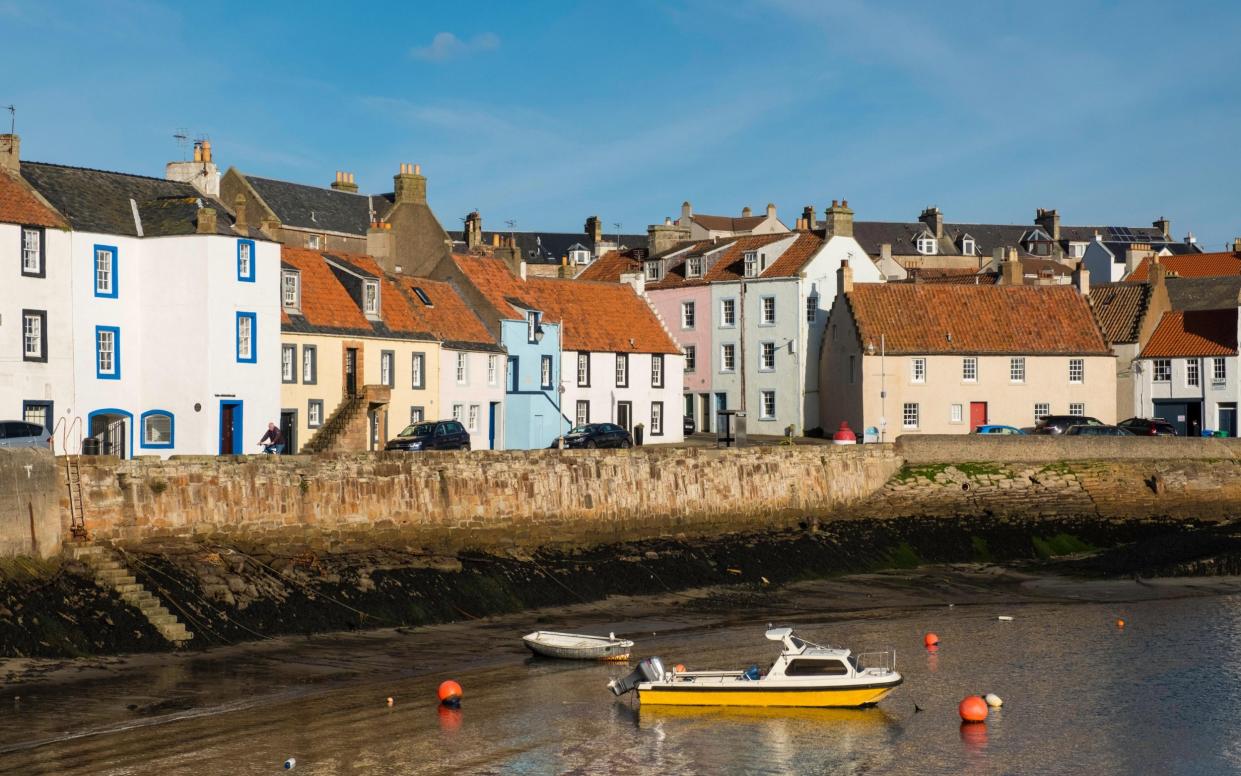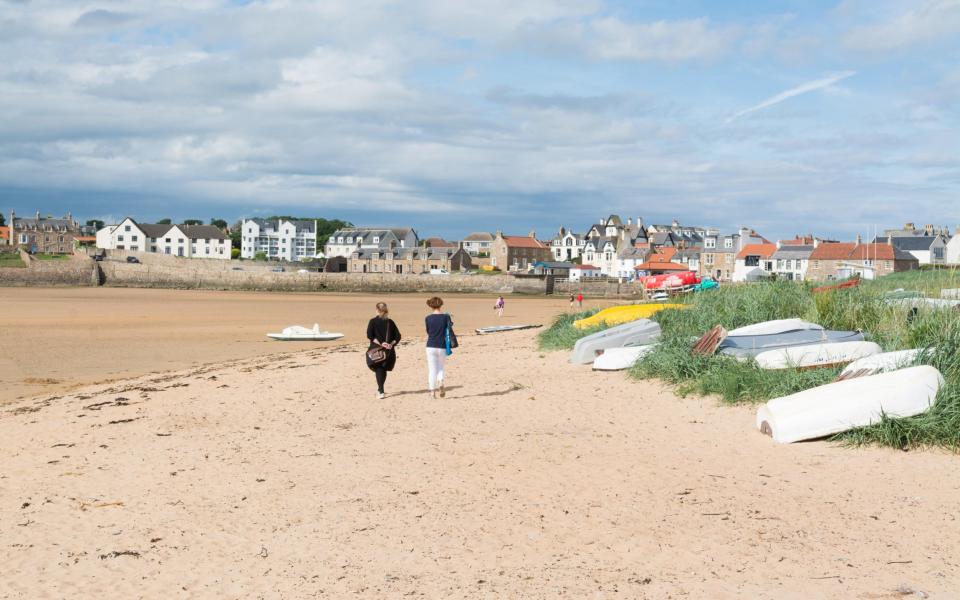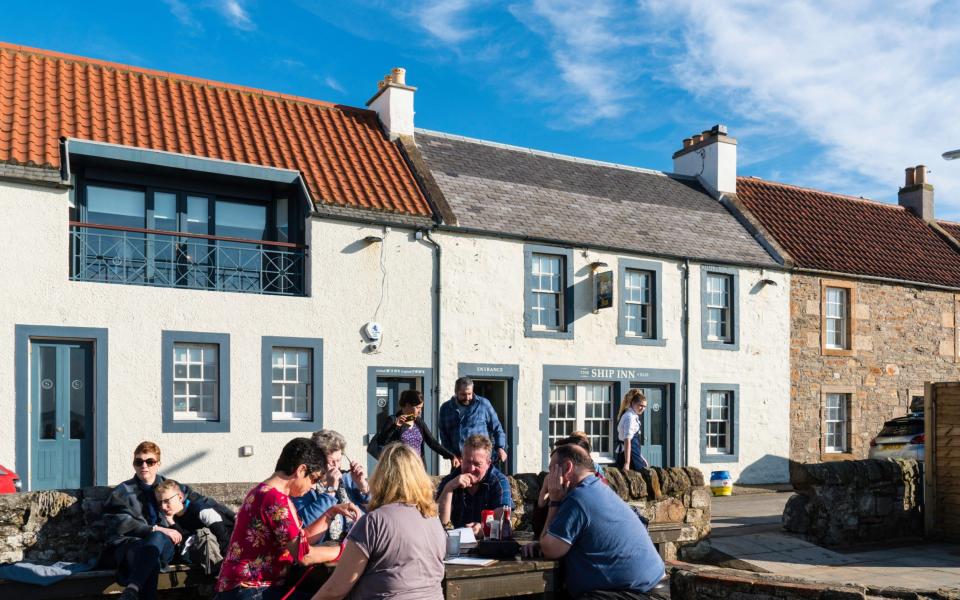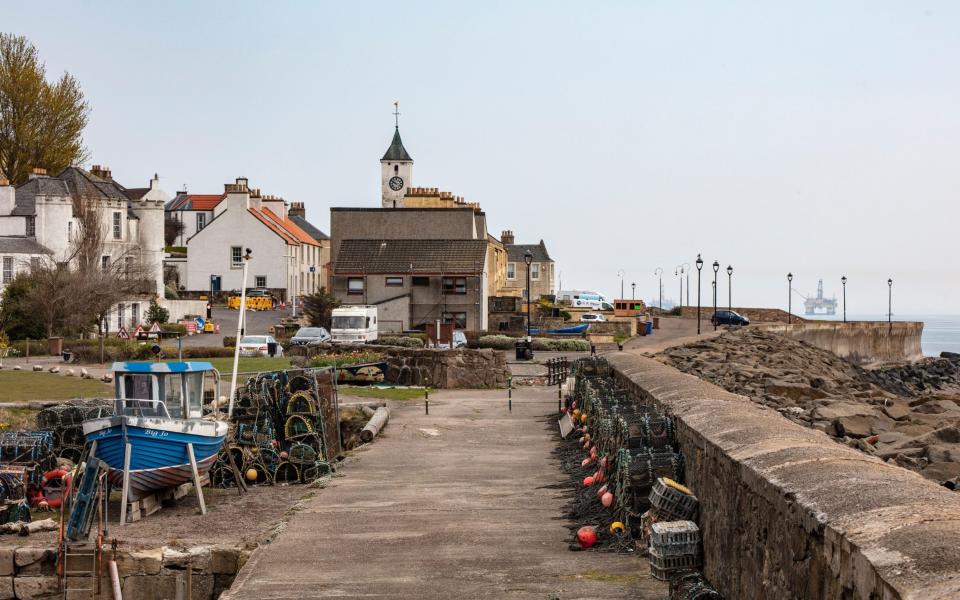Fife’s forgotten corner – a land of big skies, empty beaches and tight-knit communities

“The return of the railway to Levenmouth – the home of Robinson Crusoe – after half a century opens up this forgotten corner of Fife again,” smiles Andy Duff.
Leven used to be one of Scotland’s most popular resorts. Now the railway is breathing new life into this land of big skies, sweeping waters and tight-knit communities, with direct trains (from June 2) heading across the Forth from Edinburgh in just an hour.
Duff, of the Largo Communities Together development trust, is sitting proudly in a microcosm of Levenmouth: The Aurrie, an old Baptist church he resisted turning into flats or holiday homes, as is de rigueur further along the coast in the tourist honeypot of East Neuk.
Instead he transformed it into a community space that serves Lower Largo, Upper Largo and Lundin Links with events and a café.
“This whole coastline from the extreme east here to Wemyss in the west is getting a boost from the eight-mile railway, with new businesses and upgraded paths and cycleways. Our community is right behind it. In July our Largo Arts Week will be bigger than ever, with 60 local artists opening their doors,” he adds.

Levenmouth has sat idling for decades since the collapse of its traditional industries in the 1980s and the Levenmouth Rail Link offers the area and its web of towns and villages hope of redemption.
I’m staying in postcard-perfect Lower Largo at The Crusoe, a castaway-themed boutique hotel that makes the most of the wide island-studded Forth estuary that blesses Fife’s southern flank. Think Cornwall on Forth. And Crusoe.
Adorning the walls is the story of raffish explorer Alexander Selkirk, born in the village and Daniel Defoe’s real-life inspiration. General Manager Ross Myddleton says – as I tuck into a Crusoe Burger just metres from the surf: “The new trains are an opportunity. Already we’re seeing bookings surge and a revamp that will double our number of bedrooms.”
Heading back east I hike along the Fife Coastal Path, one of Scotland’s most dramatic long distance walks, which surges right through Levenmouth. This artery is every bit as impressive in its own ways as its more illustrious sibling, the West Highland Way.
Think of a coastline sprinkled with empty beaches, golf courses and waters once trammelled by Viking longships and Cromwell’s navy, where you often see more seabirds and cetaceans than people. The new railway line fires you right into the middle of some of the path’s most dramatic stretches.

I reach the community-run green lung of Silverburn Park on the fringes of Leven. A mental health charity has transformed the wooded coastal park. There are walking trails, a wildlife pond, a campsite with glamping pods and the best scones in Levenmouth at the Cottage Window Café. It aims to “grow the minds” of locals and visitors alike, with massive plans underway to transform an old B-listed flax mill into an event space.
Further east into Leven itself, the returning railway aims to halt its post-industrial decline, resurrecting the romance of its beach resort heyday, immortalised in local artist Jack Vettriano’s ‘Singing Butler’, a painting bathed in Fife Riviera romance.
Today’s artistic star is ‘Postie’, a brightly coloured Scottie dog statue. Leven loves this temporary art project so much a burst of fundraising has just secured him a permanent home brightening up Leven’s waterfront. There are even plans for an outdoor sauna by the beach.
Regeneration and romance hang in the salty air. From the rail terminus the wide beach and the retro Beachcomber amusement arcade and café reflect past glories, but the changing face of Leven is unmistakable, with a new Italian restaurant in the main square and dynamic businesses, like lifestyle boutique Khee.

This owner Rebecca Moncreiff beams about “a wave of fresh blood washing into Leven, with bright new delis and a wine bar coming as the town gets another chance.”
Then there is the Together Levenmouth Hub, run by local charity Brag Enterprises. The complex sports an indoor crazy golf course, escape rooms and a café, and they are adding a new gaming centre. At nearby Base, the post-industrial décor chimes with Leven’s past, while creative bistro dishes showcase Leven’s more contemporary side.
Fittingly, a community-driven project boosted by the Levenmouth Rail Link is the Fife Heritage Railway. Vintage diesel and steam trains that used to run on the old mainline rumble right next door to Leven’s new station.
“You can step off the new trains and straight back in time to the glory days before the line closed in 1969,” Audrey Unwin of the heritage railway enthuses. “Leven has a much brighter future and we’re proud to welcome our new visitors into that.”

West of Leven along the Fife Coastal Path – and accessible via buses timed around the new railway – is Macduff’s Castle. Yes, Macduff of Shakespeare’s Macbeth fame.
This rugged redoubt hangs on a cliff peering across the Forth towards Edinburgh.
Levenmouth’s final flourish comes at the Wemyss Caves, which harbour some of Scotland’s finest Pictish cave art. A guide from Saves Wemyss Ancient Caves Society literally and metaphorically illuminates the dazzling symbols and figures.
Levenmouth is a coast alive with attractions that are rarely overrun by visitors – this is a Scotland very far removed from the heavily touristed excesses of Skye and the North Coast 500.
After hopping back on the handy new shuttle bus that nips from Leven’s train station back to The Crusoe, I salute the birthplace statue of Alexander Selkirk.
He was inspired to an adventurous life on the high seas by gazing out at the Forth and the big skies of this often overlooked slice of central Scotland
I sit with a copy of Robinson Crusoe, whilst scanning the waters for dolphins and seals, as Levenmouth awaits a new generation of explorers on Scotland’s newest railway line.
Scotrail trains start running from Edinburgh to Leven on June 2


